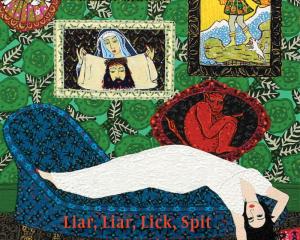A mix of relaxation and fun, plus scientific learning, has been crucial to the success of the University of Otago's annual Hands on Science programme, on its 25th anniversary this year.
That is the view of Prof John Tagg, of the Otago microbiology and immunology department, who has always strongly supported the national secondary school science camp, hosted by Otago University.
Prof Tagg yesterday gave a 7.30pm open lecture on the positive future of ''probiotics'', at St David lecture theatre, on the first day of the annual, week-long science camp.
Blis is a probiotic food supplement, and is the brainchild of Prof Tagg.
Prof Julian Crane, of Otago University's Wellington campus, was recently granted $790,319 to lead the first large-scale clinical trial of Blis.
This food supplement, containing a naturally-occurring probiotic bacteria, Strep salivarius, will be used in a bid to prevent Group A Streptococcal (GAS) sore throat infections, among a group of people at high risk of rheumatic fever.
GAS infections can sometimes lead to rheumatic fever and rheumatic fever can result in rheumatic heart disease, which itself leads to 160 deaths in New Zealand each year.
Many doctors had previously focused on the use of antibiotics, but with the advent of the first large-scale clinical trial of Blis, Prof Tagg sensed that opinions could be starting to change.
Probiotics such as Blis used naturally-occurring microorganisms to improve health, and carefully remove selected pathogens.
By contrast, antibiotics killed microorganisms indiscriminately, even if they were a useful part of the body's microfauna, he said in an interview.
There was scope for a ''beautiful combination'' of antibiotics and probiotics.
After antibiotic use, probiotics could ''plant'' healthy microorganisms, to limit problems with infections, such as thrush, taking hold.












